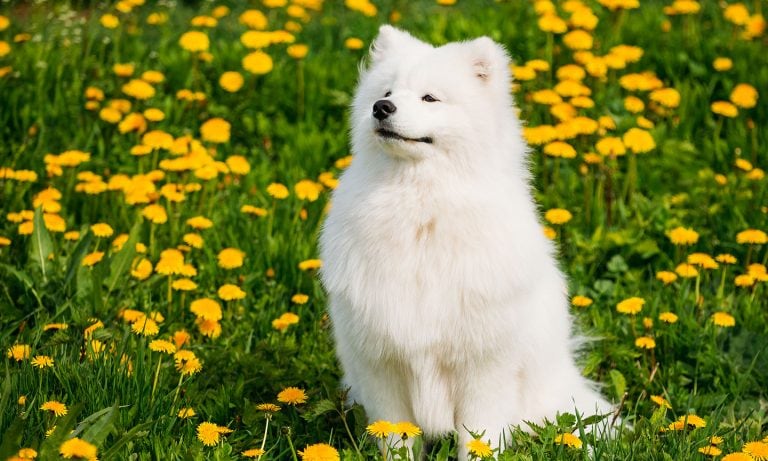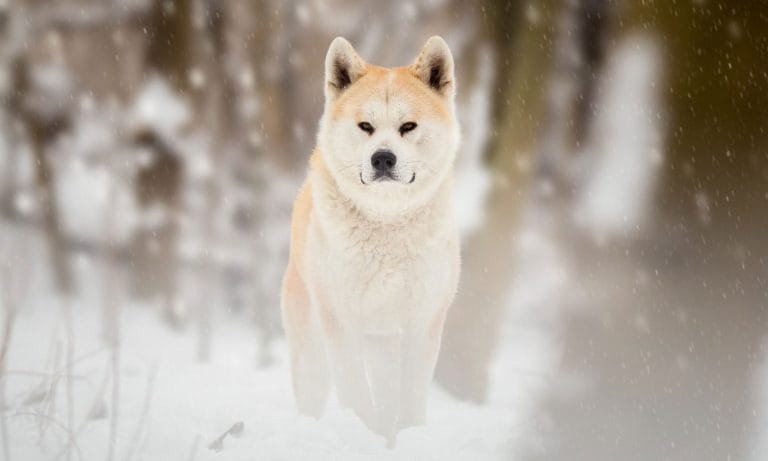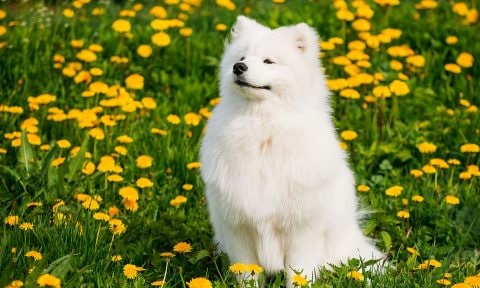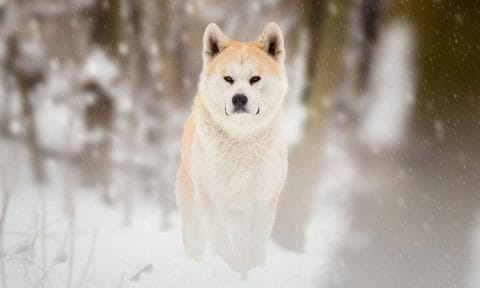Samoyed vs Akita

Breed Snapshot
Best For
Samoyeds are majestic, fluffy Arctic dogs who require plenty of exercise and mental engagement. With their eye-catching white boat and friendly temperament, they're ideal for pet parents seeking an affectionate, energetic and stunning companion.
Samoyed Temperament
With a delightful smile ready to greet you at a moment’s notice, it’s no surprise that the Samoyed dog breed’s qualities are rooted in having fun and being the family mood-booster. Looking to make friends? Your Sammy’s good-natured temperament means you’ll end up meeting jus...
With a delightful smile ready to greet you at a moment’s notice, it’s no surprise that the Samoyed dog breed’s qualities are rooted in having fun and being the family mood-booster. Looking to make friends? Your Sammy’s good-natured temperament means you’ll end up meeting just about everyone on the block. If you want your Samoyed as a guard dog, you may want to look elsewhere. Sammies are so friendly, they’re likely to give an intruder a tour of your home.
Samoyeds (aka Siberian Samoyeds) are whip-smart and crave all the TLC. Without it, they can become mischievous to get your attention. And don’t even think about leaving them out by themselves for long. Sammies would much rather be in the house with the whole fam instead of being relegated to the outside by their lonesome. They form deep bonds with their human families and have a pack-mentality. Proper socialization is important to keep your pup active, engaged and challenged.
While they’re always up for an adventure, they can also be headstrong and a bit demanding. They won’t be afraid to tell you they need attention with their distinctive whine.
Speaking of communication, Samoyeds are fond of barking or using their teeth to get your attention. This is more common when Sammies are not fully trained, and they’ll nip or tug at you with their teeth in a non-aggressive manner. But there’s an explanation for this behavior: They’re used to grabbing their packmates with their mouths, and with their dense fur, they grip harder, so it’s natural for them to do the same with their people.
Samoyed Traits

Breed Snapshot
Best For
Loyal and independent, Akitas are best for homes of any size with experienced pet parents who can provide long, daily walks and plenty of quality time. Consistent training and a committed pet parent contribute to...
Loyal and independent, Akitas are best for homes of any size with experienced pet parents who can provide long, daily walks and plenty of quality time. Consistent training and a committed pet parent contribute to a successful and loving Akita companionship.
Akita Temperament
Quiet and dignified, Akitas are loyal dogs who love spending time with their families. They’re intelligent and fairly energetic, so they’d enjoy both mental and physical activities, like going on long walks together or solving doggy puzzles. Social butterflies they are not. Akitas often feel cautious a...
Quiet and dignified, Akitas are loyal dogs who love spending time with their families. They’re intelligent and fairly energetic, so they’d enjoy both mental and physical activities, like going on long walks together or solving doggy puzzles.
Social butterflies they are not. Akitas often feel cautious around strangers. Because of their more aloof personality, they’ll benefit from extra socialization and training while growing up. Still, it’s best to supervise them closely around other pets or young children, especially once your pup is fully grown. Akitas may actually do best as the only pet in a home without small children or babies around.
Originally bred to serve as guard dogs, Akitas have a strong bite force and will monitor what’s going on in the home while they’re spending time with you. A good pup parent will provide proper training and socialization to ensure their dog knows the difference between a foe and friend.




